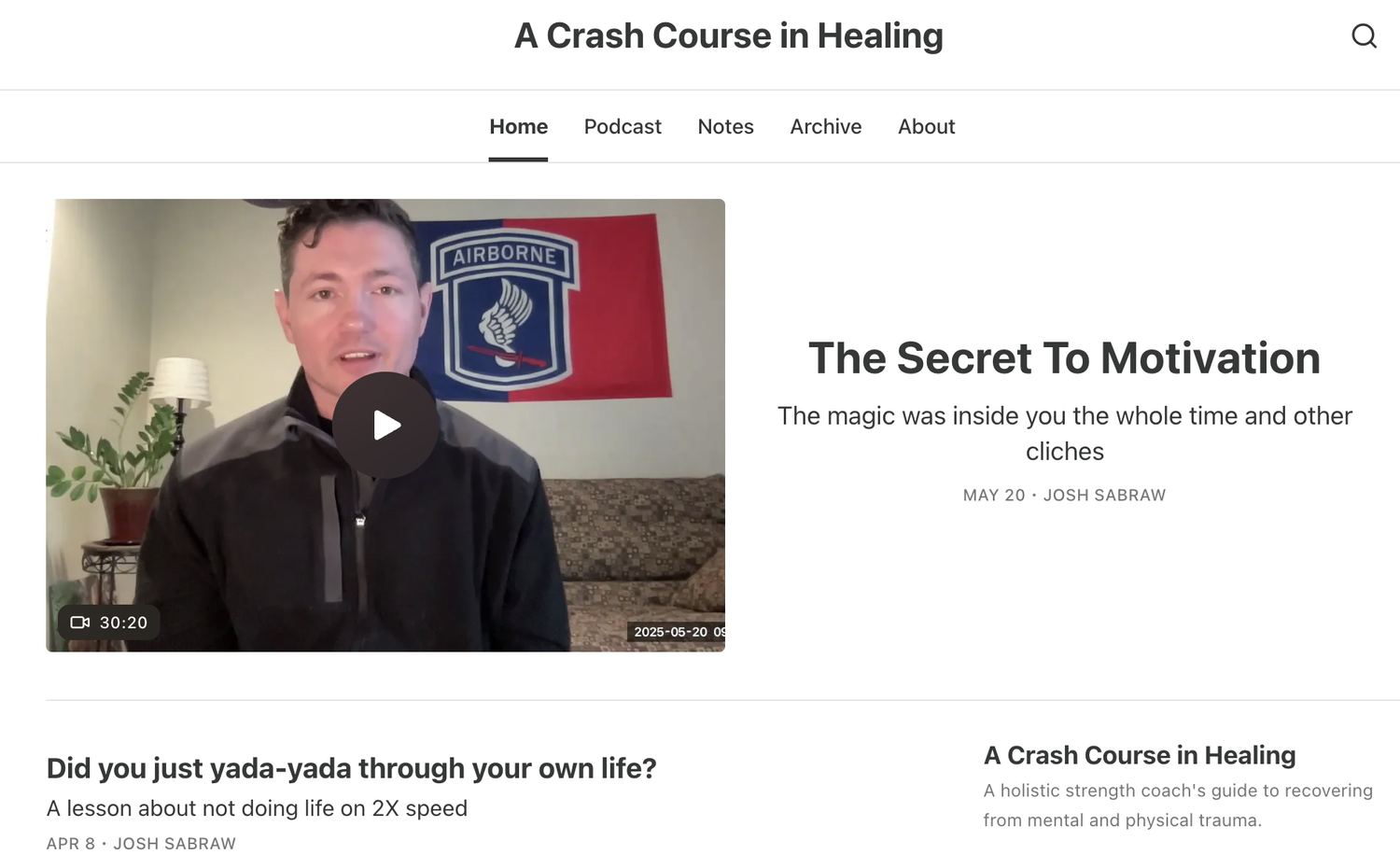JOSH SABRAW COACHING
HOLISTIC STRENGTH COACH
Supporting people on the path to transformation

ABOUT ME
Hi there, I’m Coach Josh.
For over 20 years, I’ve been helping people discover their resilience, physically, mentally, and spiritually. What began as a hobby on my front porch became an extra duty helping fellow soldiers in the United States Army, and now I work with everyone from teen athletes to corporate executives to cancer survivors to seniors and more.
My mission is to support people as they learn how to build habits that actually work and nurture the character traits that make it easy to build muscle, burn fat, and consistently feel good so they can show up better for themselves, their families, and their communities.
In my work, I not only help my clients understand what their body is truly capable of but I also help them explore how to incorporate strength and resilience into their whole life.
FOLLOW MY JOURNEY
